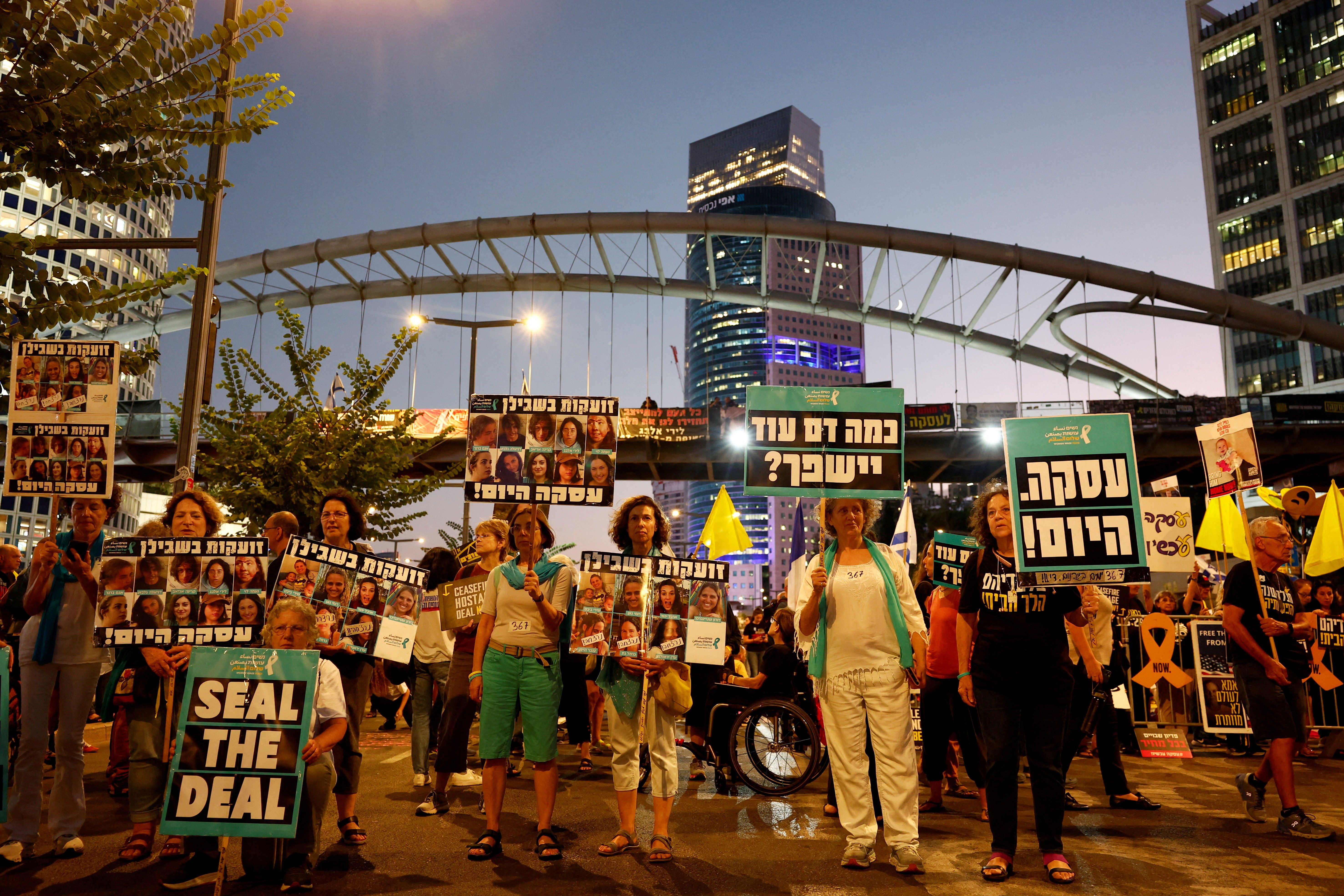As Israel marked the one-year anniversary of the Oct. 7 massacre, Hamas and Hezbollah both launched rocket attacks on heavily populated areas of the country, wounding at least two Israeli women, and forcing evening memorials to be scaled down in size over security concerns. Eighty-five rockets were fired at the coastal city of Haifa, the heaviest barrage on the coastal city since the start of the war. The Israeli military also reportedly intercepted a missile launched from a Houthi-controlled area of Yemen.
In response, Israel launched an attack in south Gaza and conducted what it described as “extensive” strikes on alleged Hezbollah targets in Lebanon, including in densely populated neighborhoods of the capital, Beirut. Over 2,000 Lebanese have now died in Israeli airstrikes, some 10,000 have been wounded, and approximately 1.2 million people — one in every five Lebanese — have fled their homes.
Around the world, people marked the grim anniversary with vigils and protests. Many major American universities, including Harvard, Columbia, NYU, and UCLA – sites of protests in the spring – saw large gatherings both to commemorate the victims of Oct. 7 and to protest Israeli military action.
What now? A year on from the attacks, which set in motion a cataclysm across the Middle East, the biggest short-term question is still if, when, and how Israel may respond to last week’s barrage of hundreds of Iranian ballistic missiles, and whether that response will pitch the two countries into a wider war.
For a look at seven key storylines one year after the Oct. 7 attacks, see here.
